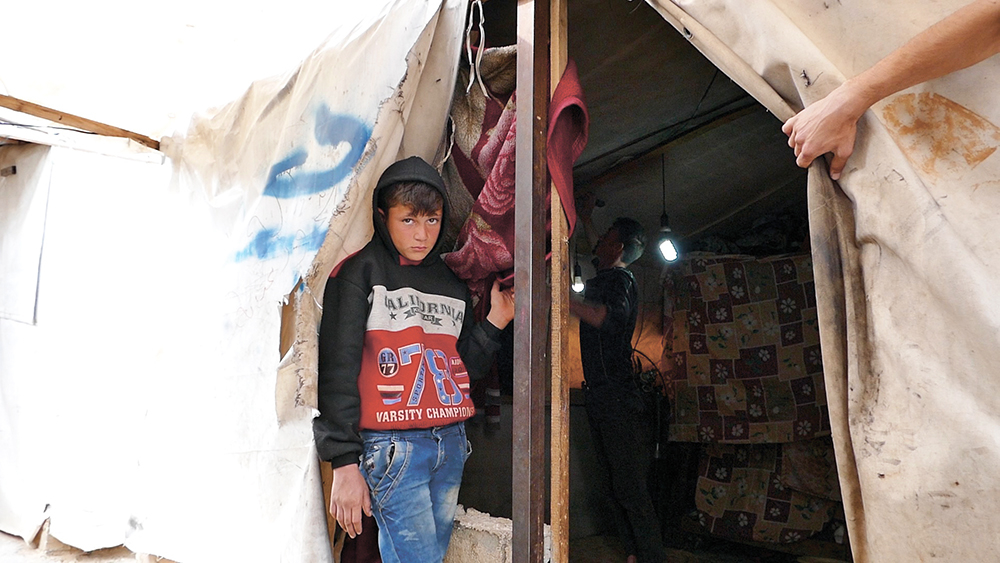‘Give me a future that means something’
What it’s like to grow up in a Lebanese refugee camp
Thirteen-year-old Hayyan tuts and rolls his eyes at the very suggestion. Best football team in the world – Manchester United? He looks horrified.
“Tut! Real Madrid!” he contends. “And the best footballer in the world is Messi.”
They’re trapped, here in Lebanon.
Hayyan has a passion for football. All the time, not just when the World Cup rolls around every four years.
He plays soccer on a computer screen for hours at a time. There’s little else to do here at this refugee camp in northern Lebanon. “I get bored,” Hayyan says. “I walk from here to the playground, and then I walk back.”
Hayyan ought to be in school, but his brother, Mohammed, needs his help to scavenge through the rubbish for anything they can repair or sell.
It’s their only form of income. They’re trapped, here in Lebanon. All that stands between them and their own country, Syria, are the mountains – and seven years of civil war.
They can’t go back. And the lack of education means they can’t go forward. There’s nothing for them here, either.
The Bible Societies of Lebanon and Australia are working together to give children such as Hayyan the chance of recovering some of their lost years of schooling. They’re drawing up plans to provide literacy training in several refugee camps including this one.
Bible Society in Lebanon aims to teach 6000 young refugees to read and write over the next three years in a biblical literacy programme. It is also bringing storytelling to camps in Lebanon, distributing Scripture booklets to children, and providing Bibles and practical help to refugees.
Their real home lies in Syria, in ruins, destroyed by a tank.
Hayyan helps Mohammed tidy their canvas tent. It doesn’t take long. There’s just enough space to stand and lie down and store some pots and pans, as well as a few items salvaged from the garbage. Even the clothes they wear are someone else’s throw-outs.
Their real home lies in Syria, in ruins, destroyed by a tank. It was during gun battles there that Hayyan’s uncle was killed. “They shot him,” he says, simply. “I was sad to see people dying.” His eyes are more eloquent than his words.
Mercifully, in the five years Hayyan has been in Lebanon, much of that bloodshed has become a blur. “I was a little child when it happened,” he says.
What he can remember is that his mother died from a heart attack in Syria. And after his father made it here to this camp, he died too, of cancer.
“There is no help. Just God’s help.” – Mohammed
Hayyan’s elder brother, Mohammed, is now the head of the family. And the weight of responsibility is taking its toll. He chokes back tears of frustration. He’s skinny, frustrated, and angry. “There is no help. Just God’s help.”
Refugees are refused work permits, so Mohammed can’t earn. And he’s been saddled with a load of extra responsibility. No single men are allowed in this camp, so Mohammed had to take a wife. Now he has to take care of her and a child as well as his two younger brothers.
He needs his brothers’ help. So he’s had to pull them out of school. He knows that’s robbing them of their future, but what’s the alternative? He wants to work, but no one will let him. And 13-year-old Hayyan has nothing to do, save try to help his brother and lose himself for an hour or two in the pixelated magic of his footballing hero, Lionel Messi.

